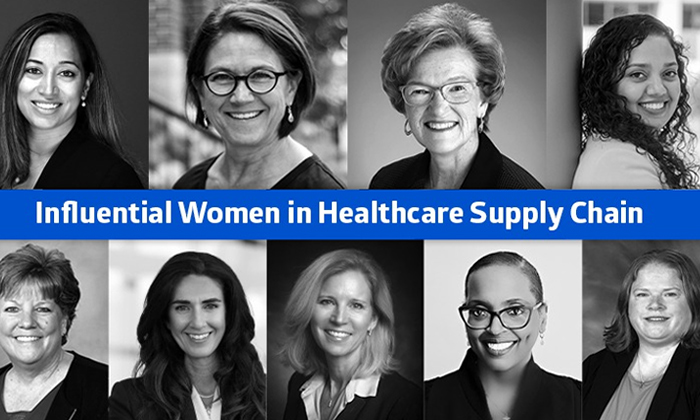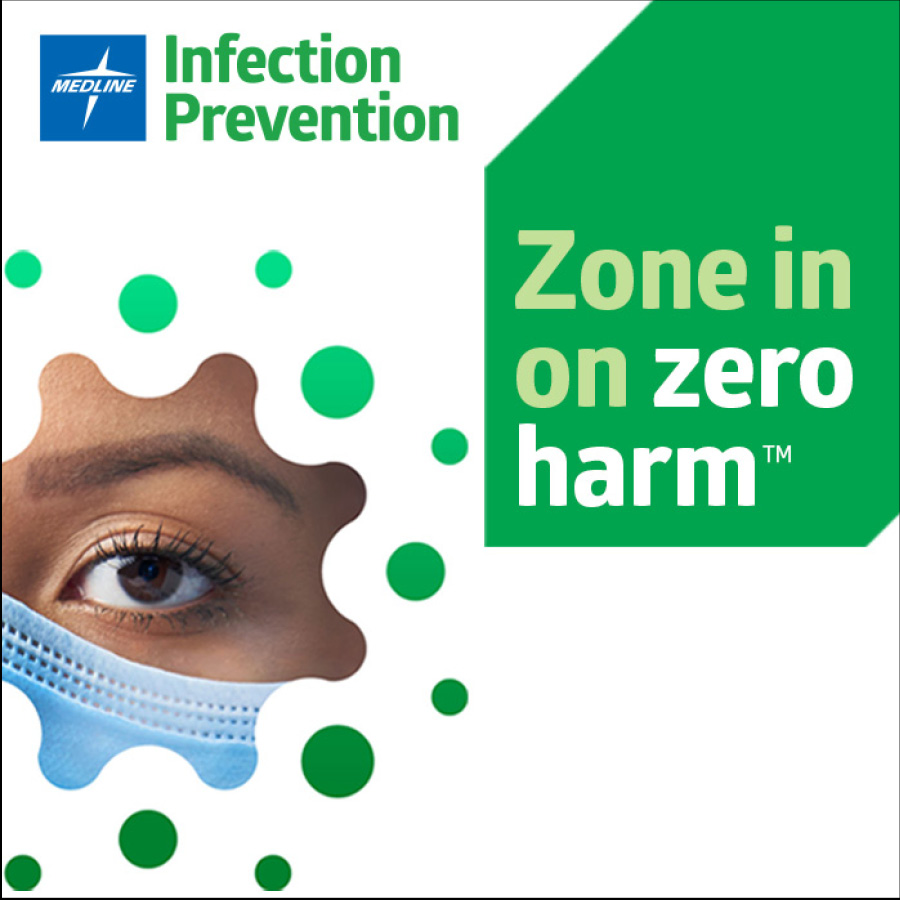Women supply chain leaders share advice for advancing a career in healthcare

In honor of National Health Care Supply Chain Week, Medline celebrates women shattering glass ceilings in healthcare
By Medline Newsroom Staff | October 6, 2021
According to a 2021 Gartner study, women make up 41% of today’s total supply chain workforce, an increase from 39% in 2019 reflecting steady annual growth for the last four years. During a time when supply chains have never been more critical, especially for healthcare, a continued commitment to improving and encouraging workforce diversity will play a vital role in the progression of the healthcare supply chain.
In honor of National Health Care Supply Chain Week, October 3-9, Medline spoke with female supply chain leaders from renowned healthcare organizations, including The University of Alabama at Birmingham Medicine, Advent Health, The University of Kansas Health System, Mayo Clinic, Ochsner Health, Providence health system, Stanford Medicine, Sutter Health and UC Davis Health, to garner their advice for current and future generations of women pursuing careers in supply chain.
Make time to network
A recent study in the Proceedings of the National Academy of Sciences found that successful female job-seekers rely not only on a wide network of contacts, but also a close inner circle of other women who can provide gender-specific job advice.
“Having mentors and networking with great coaches and female leaders taught me different perspectives and helped me observe things I didn’t naturally pay close attention to,” shared Marisa Farabaugh, senior vice president and chief supply chain officer for AdventHealth. “It’s important to pay it forward by being a mentor. There’s nothing more rewarding than helping someone in a moment of opportunity.”
Farabaugh shared that sometimes women discount the value of their input, but they often have a strong ability to multi-task and understand how to manage through influence, negotiation and contributions at many levels. Networking can share perspective on what other women in similar roles are experiencing at their organization.
“While we may be spread out across the country, we’re almost like a close family. I haven’t met another woman in healthcare supply chain who isn’t open to networking and supporting other women who are climbing the leadership ladder,” said Laura Kowalczyk, vice president of supply chain and support services, UAB Medicine.
For Nancy Wobig, associate vice president for Vizient supporting Mayo Clinic, it is important for her to help women build their brand by figuring out who they want to be and how they can tell their story. There are currently about 80 employees in category management within Mayo and nearly half are women. As a mentor with the Professional Women in Healthcare® organization, she encourages women to participate in related organizations to help them feel empowered and ready to lead and succeed.
“Regardless of sex, ethnicity, age, you cannot get lost in what people think about you. This is an impossible dilemma. It is important to understand your “true-self”, your values, and bring that forward into how you lead. It is all about the people we lead, interact with, and serve. When we are fortunate enough in our careers to have learned, grown, and excelled, it is important to give back, provide mentorship, and develop networks. Being a strong advocate will help get more women leaders in supply chain, and a diverse and heterogeneous workforce drives benefits and value,” Amanda Chawla, chief supply chain officer at Stanford Medicine.
A passion for people is essential
Over the years, supply chain has gone from the basement to the boardroom, with representatives now having active participation in leadership meetings. Supply chain is one of the only teams that touches every department in a healthcare organization. As healthcare delivery has become a more integrated effort between supply chain and clinical, it is critical for today’s supply chain to examine every aspect of care delivery and its correlation to quality of care and financial outcomes. That’s why Regine Villain, senior vice president of supply chain network and chief supply chain officer at Ochsner Health, and Janie Ott, vice president of supply chain at The University of Kansas Health System, stress the importance of having a passion for people when working in supply chain.
“Supply Chain is so much more than simply delivering a box. We consistently expand the boundaries to ensure everything we’re doing aligns with the expectations of our patients and caregivers,” said Villain.
She routinely reminds employees that they are responsible for the care and delivery of life-saving devices, so it is critical to treat every package with compassion, intent and urgency.
“Those items we carefully source, procure, receive, inventory, and deliver directly affect the patient care continuum in which we play a pivotal role. That focus on the human element and passion for the communities we serve is the driving force of every decision we make in our supply chain network. Without that compass, it becomes more challenging to maintain a sense of connection to purpose.”
Ott also shared, “The number of women working in supply chain is on the rise. I believe that by advancing diversity, quality and inclusion, supply chains are progressing in an already complex arena. Encouraging and recruiting women to consider supply chain is critical to the evolution of our industry. My advice to women seeking a career in supply chain is to harness your passion, innovation, and to be confident in sharing what you can bring to the table through your unique abilities and strengths.”
Don’t be afraid to lean in
“Leaning in” is a workforce motto coined by Sheryl Sandberg back in 2013, focused on encouraging women to pursue their ambitions, and changing the conversation from what they can’t do to what they can do. Many of the supply chain leaders the Medline Newsroom spoke with shared that supply chain wasn’t originally their planned career.
“I was working as a perioperative support tech in anesthesia and had the opportunity to help with reviewing current supply kits and design kits for new procedures. In the beginning, I did not connect the dots that my clinical lens could help beyond improving the functionality of a kit for our clinicians,” said Karla Butts, executive director at Providence health system.
Butts quickly started to recognize that the work done in the supply chain function, evaluating utilization, analysis based on preferred contracting, and having the opportunity to negotiate contents and packaging order, could make a real impact to the safe and affordable delivery of care.
She advises, “It is important that we provide the upcoming generations with examples of women leaders so they see the opportunities available to them by having professional role models and mentors who can help develop them as future supply chain leaders.”
Ginny Borncamp, vice president of supply chain at Sutter Health, shares a similar sentiment: “You don’t have to have planned a career in supply chain to play a strong role in the sector. Not only is it an opportunity for women coming from different backgrounds, but it’s an opportunity for diverse thought to improve overall supply chain performance.”
“Be bold, dream big and be brave. This is an exciting time to create what the future is going to be. Trust the voices in your head and work hard to achieve your goals,” says Jita Buno, executive director, UC Davis Health.
Medline is committed to improving the resiliency of the healthcare supply chain today and for the future. Learn how Medline is helping make healthcare run better across the entire continuum of care as a manufacturer and distributor.
Medline Newsroom Staff
Medline Newsroom Staff
Medline's newsroom staff researches and reports on the latest news and trends in healthcare.
